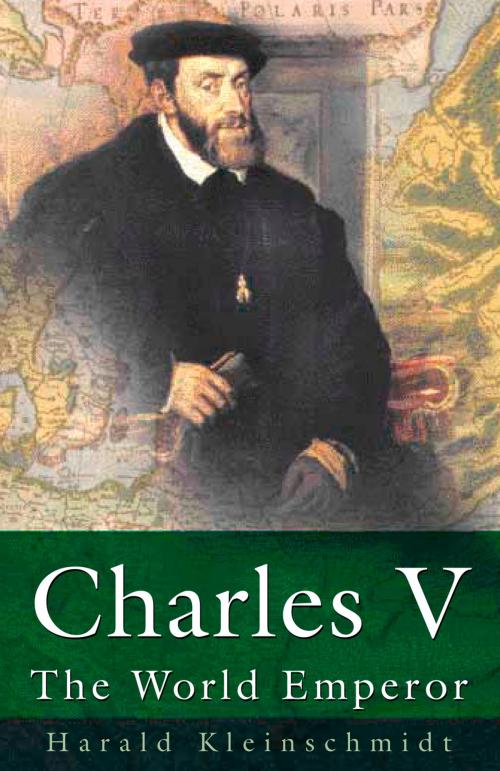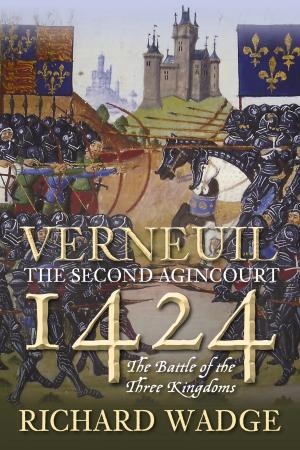| Author: | Harald Kleinschmidt | ISBN: | 9780752474403 |
| Publisher: | The History Press | Publication: | October 24, 2011 |
| Imprint: | The History Press | Language: | English |
| Author: | Harald Kleinschmidt |
| ISBN: | 9780752474403 |
| Publisher: | The History Press |
| Publication: | October 24, 2011 |
| Imprint: | The History Press |
| Language: | English |
Charles V (1500-58), King of Aragon, ruler of Castile and Roman Emperor is one of the most interesting and perplexing of the great European monarchs. Son of Philip the Handsome and Juana, Queen of Castile, who was regarded as insane, by the age of nineteen he was the most powerful monarch in Europe. In this, the first biography for many years, Harald Kleinschmidt draws on the latest research to portray Charles V in the light of his upbringing and dynastic relations, and against a background of turmoil and unprecedented European expansion. Coming to power as a very young man, Charles V held high aims and ideals about exercising control over the greatest number of territories ever accumulated by a European ruler. As the defender of Catholic Christendom, he attempted to achieve both the cultural and religious unity of Europe and European world rule. His struggles against Lutheranism were initially successful, but the harsh measures he took against his Protestant prisoners provoked an uprising that forced him to grant Protestantism legal recognition. Likewise, although Charles V substantially extended Spanish dominions in the New World through the conquest of Mexico by Cortes in 1519-21 and of Peru by Pizarro ten years later, the demands of ruling his vast European realm ultimately overwhelmed him. Disillusioned by the seeming impossibility of achieving peace in Europe, in 1555 Charles renounced his imperial crown in favour of his brother Ferdinand. Shortly afterwards, he resigned his kingdoms of Spain, the Netherlands and the Spanish Americas to his son Philip and retired to live in seclusion near the monastery of San Geronimo de Yuste. Legend has it that his ghost continues to advise the Spanish monarchs.
Charles V (1500-58), King of Aragon, ruler of Castile and Roman Emperor is one of the most interesting and perplexing of the great European monarchs. Son of Philip the Handsome and Juana, Queen of Castile, who was regarded as insane, by the age of nineteen he was the most powerful monarch in Europe. In this, the first biography for many years, Harald Kleinschmidt draws on the latest research to portray Charles V in the light of his upbringing and dynastic relations, and against a background of turmoil and unprecedented European expansion. Coming to power as a very young man, Charles V held high aims and ideals about exercising control over the greatest number of territories ever accumulated by a European ruler. As the defender of Catholic Christendom, he attempted to achieve both the cultural and religious unity of Europe and European world rule. His struggles against Lutheranism were initially successful, but the harsh measures he took against his Protestant prisoners provoked an uprising that forced him to grant Protestantism legal recognition. Likewise, although Charles V substantially extended Spanish dominions in the New World through the conquest of Mexico by Cortes in 1519-21 and of Peru by Pizarro ten years later, the demands of ruling his vast European realm ultimately overwhelmed him. Disillusioned by the seeming impossibility of achieving peace in Europe, in 1555 Charles renounced his imperial crown in favour of his brother Ferdinand. Shortly afterwards, he resigned his kingdoms of Spain, the Netherlands and the Spanish Americas to his son Philip and retired to live in seclusion near the monastery of San Geronimo de Yuste. Legend has it that his ghost continues to advise the Spanish monarchs.















